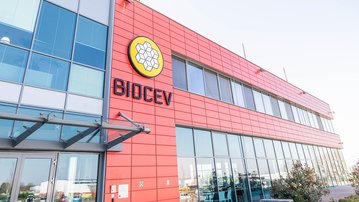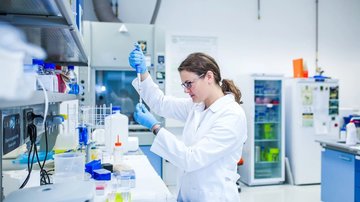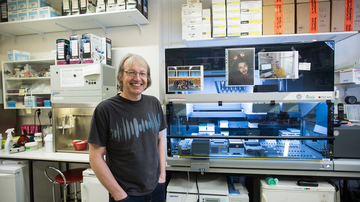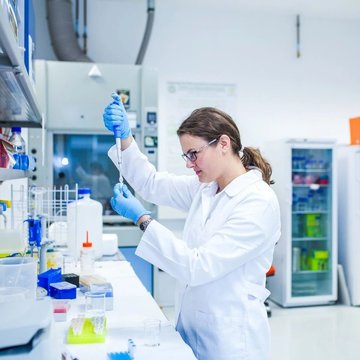
Clinical Proteomics
Introducing the research group headed by Doc. Jiří Petrák
Doc. Jiří Petrák’s research group of clinical proteomics operates within the First Faculty of Medicine of Charles University at the BIOCEV Centre in Vestec. The group applies quantitative methods of studying the proteome using mass spectrometry to describe the molecular mechanisms of serious illnesses, to search for clinically useful diagnostic markers, and to identify new intervention points for therapy.
In addition to the team head, the team comprises Dr. Ondřej Vít and doctoral students Mgr. Matěj Běhounek, Mgr. Denisa Lipcseyová and Mgr. Pavel Talacko. The group was established more than 15 years ago at the Institute of Pathological Physiology at the First Faculty of Medicine of Charles University, from where it moved to the BIOCEV Centre in 2016.
Mass spectrometry can very accurately determine the mass of peptides and their fragments down to the level of an amino acid sequence or even post-translational modifications. If we have information on the sequence of all coding genes, then the proteins present in the sample can be identified using the measured information. The best current proteomic methods can identify and quantify 8–10 000 different proteins in a human tissue simultaneously within a few hours of measurement. This number is already close to the number of actively transcribed genes in an average human cell. By comparing two or more proteome states (e.g. between a tumour cell and a normal cell of the original tissue), it is thus possible to identify proteins that differ quantitatively (i.e. in terms of their amount) or qualitatively (e.g. in terms of post-translational modifications) in a tumour cell. It can be assumed that such proteins contribute to or are directly responsible for the properties of the cell or tissue under study.
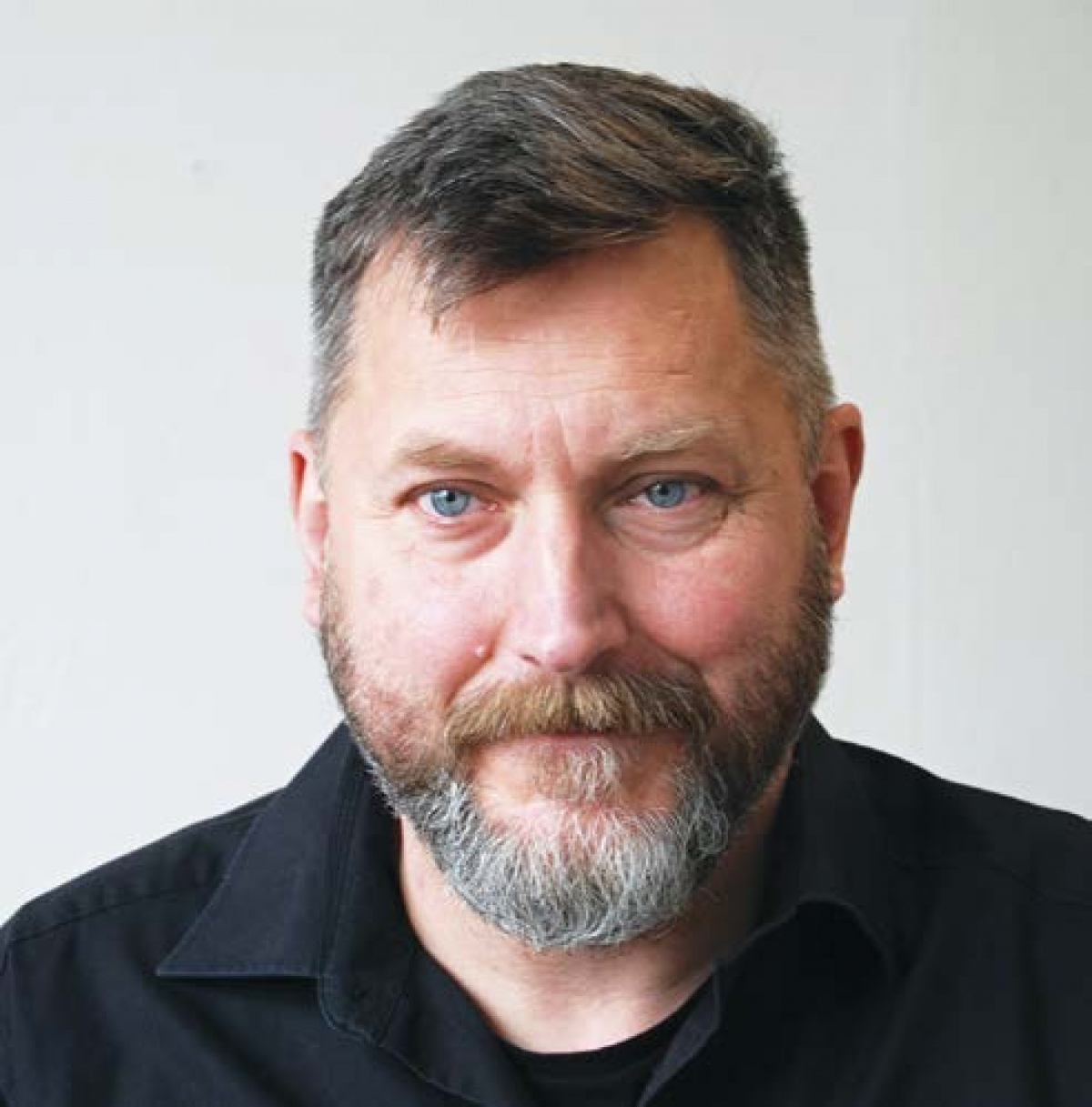
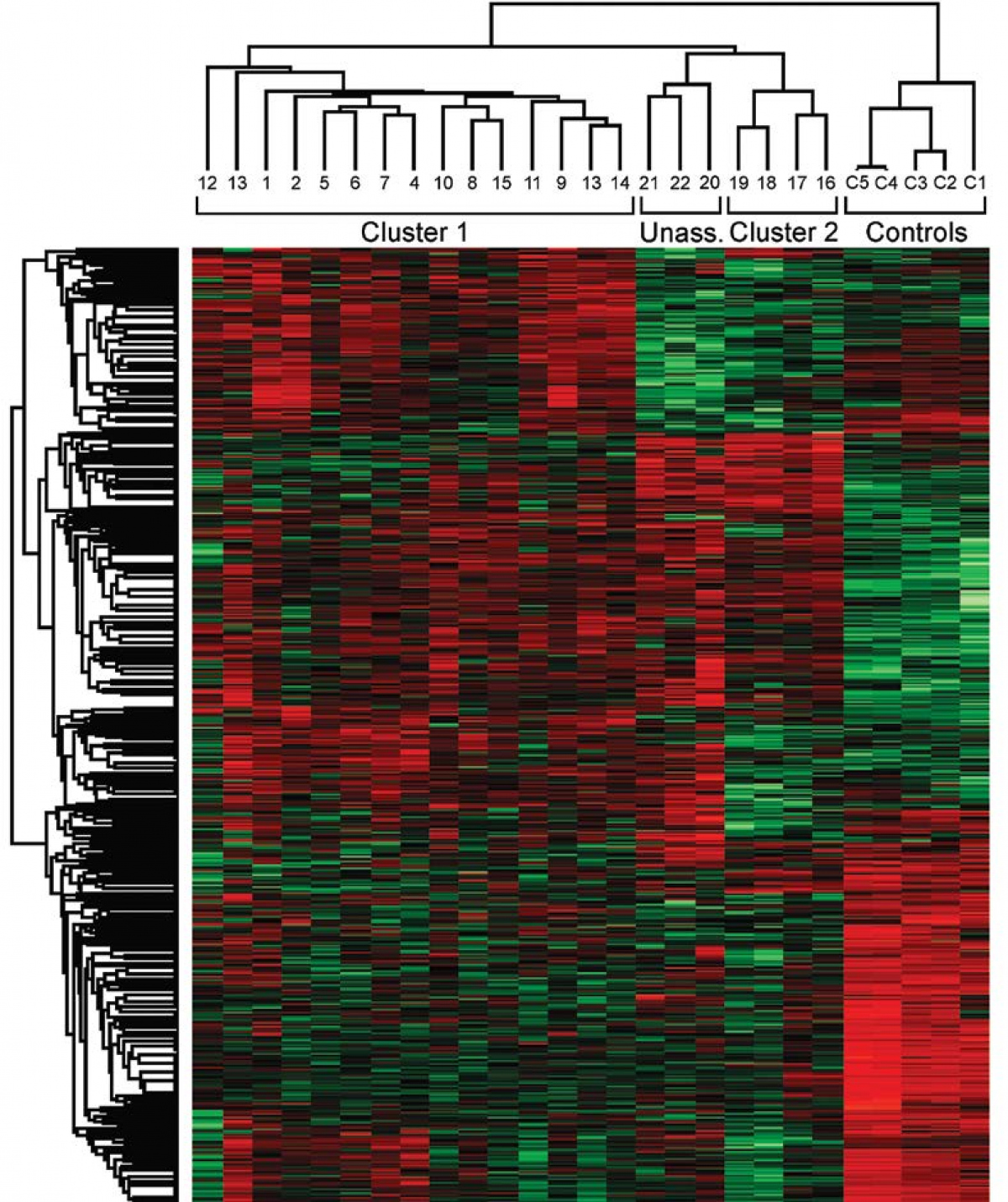
Figure: Hierarchical clustering. Based on measured proteomic profiles consisting of quantitative data on thousands present in the sample, we can phenotypically characterise individual subgroups of rare neuroendocrine tumours – both paragangliomas and pheochromocytomas.
The development of new proteomic techniques
Sample preparation and fractionation are an integral part of proteomic analyses, as even the best mass spectrometers cannot cope with the complex composition of human tissues. The laboratory uses special techniques to isolate cellular components, purify proteins, cleave proteins using specific enzymes and chemicals, enrich certain types of (e.g. glycosylated) peptides, label them and fractionate them. Also, the development of new proteomic techniques and methods is an integral part of the team’s research work – some of them are quite unique, such as the method of isolating hydrophobic regions of transmembrane proteins. In addition to these techniques and tools, the laboratory also uses methods of molecular and cellular biology.
The team’s current projects include the identification of key molecules associated with the development and progression of rare neuroendocrine tumours such as pheochromocytomas and paragangliomas. The aim of the project is to find new intervention points for imaging and deciding on the best therapy for these tumours. The second project is the analysis of changes in the myocardial proteome in chronic heart failure, aiming to uncover the molecular processes associated with this disease and find clinically useful protein markers. The current collaboration with the 3rd Department of Internal Medicine of the First Faculty of Medicine at Charles University and the General University Hospital (Prof. Tomáš Zelinka), IKEM (Prof. Vojtěch Melenovský), as well as with foreign partners (The National Institutes of Health, USA, Prof. Karel Pacák) is also based on the current projects. The group is also working on several other projects, both within the faculty and extramural.
For additional information about the group, please visit its website at: www.petraklab.cz
Source: Magazine Jednička (First Faculty of Medicine, Charles University), 1/2023

